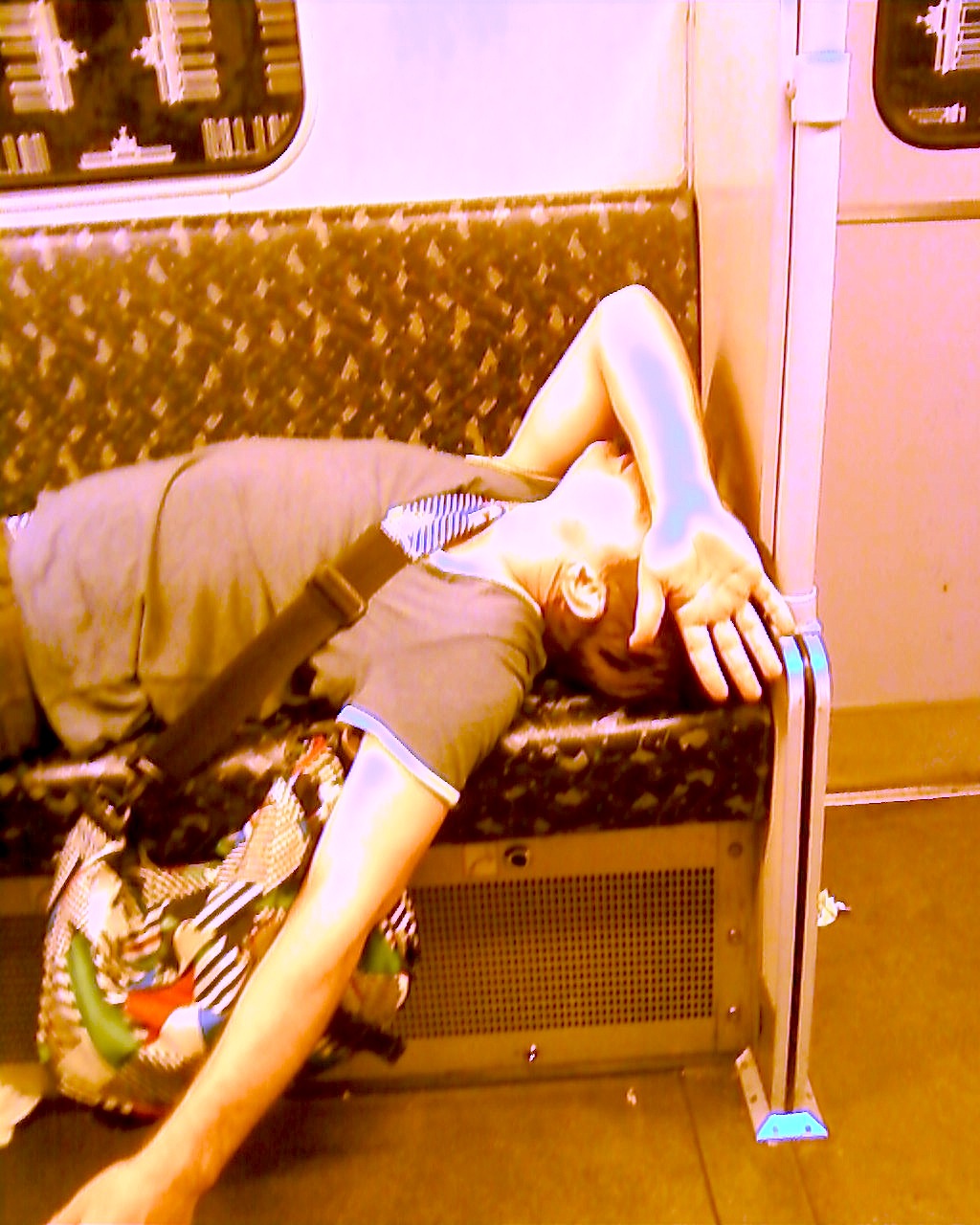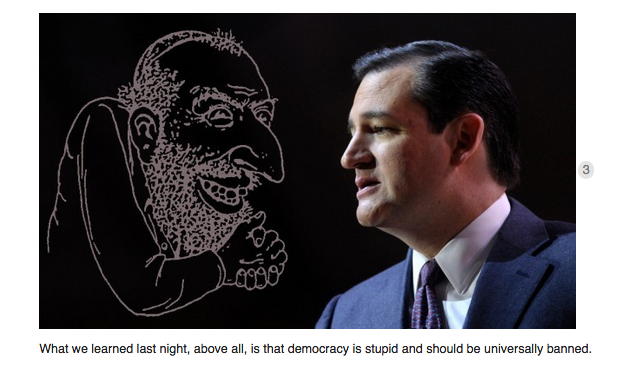Train Strikes: Getting On Board with the GDL
 |
| Melodramatic scenes like this are unlikely to occur in Berlin during the strike (the U-Bahn's too crowded for that!) |
Germany’s train strike has been happening on
and off for 10 months now and yet somehow, it feels like it’s been happening for about 10
years. Perhaps that’s because the details that we hear about it never seem to change. Every new strike comes with the same, tired preamble, stating that no progress
has been made between the parties hammering out an agreement (about what? No one really seems to know). They tell us that the negotiations have been broken off yet again, also for reasons unknown. Like me, you might be wondering, what's even going on here?
After reading near-identical reports about the strikes on the Telegraph, BBC, Deutsche Bahn and Deutsche Welle, I realized that the world's news outlets aren't doing much to answer that question. Their coverage all follows the same formula: half the article is spent complaining about the disrupted train services, the other half is spent quoting someone from Deutsche Bahn who is either a) criticizing the strikers or b) praising their corporation for being so patient with the strikers. The train worker's union’s demands - a 5% pay increase and a 2 hour reduction in their working week - sometimes warrant a brief mention, like they're purely incidental. Like they're not at the very epicenter of this whole dispute. Weird.
So I'm going to lay it out for you straight: Deutsche Bahn's management is greedy, stubborn and apparently, also wealthy enough to buy a media whitewash from every other news outlet in Europe. There. I said it. Now for the evidence.
The demands being made by the train worker's union (GDL or Gewerkschaft Deutscher Lokomotivführer) are pretty modest but Deutsche Bahn (which, incidentally, made 642 million Euros profit after taxes in a single quarter, according to this 2014 report) keeps on refusing to meet them. Oddly, DB has made no attempt to justify its refusal to play nice. But then, it doesn't have to. In July 2015 a new collective bargaining law takes effect that will effectively strip GDL of the right to act as a union.
The new law states that only the largest trade union within a given company will allowed make collective bargaining agreements, from July onward. So, only unions that represent vast numbers of employees will be able to take action when the bosses refuse to meet their terms. Unions that represent people doing highly specialized jobs will no longer have the power to do things like go on strike. No wonder the DGL is aggressively pushing their case... while they still can.
The new law is a sneaky attempt to erode union freedom while still theoretically allowing unions to exist. By only allowing large unions to strike, the government can cut down on industrial actions overall, while at the same time claiming that they are liberal and democratic and tolerant... just less so than all the other administrations that have existed until now, that's all. Unions are also prone to corruption when they get too big, so criminalizing smaller ones seems like a sneaky way to ensure that activists quickly adopt the same lowest-common-denominator, might-is-right style of thinking that their corporate bosses can 'work with'.
Meanwhile, Deutsche Bahn keeps on returning to the bargaining table with DGL, just to give the public the impression that they are being cooperative. Yet each time that they do, they tell the DGL that they won't meet their terms until they reduce the demands, as the EDV (the largest train worker's union) has already done. Unsurprisingly, the DGL doesn’t like the larger union's terms all that much, and they keep saying 'no'. (D'you think that might be the reason why they started a new union?)
After reading near-identical reports about the strikes on the Telegraph, BBC, Deutsche Bahn and Deutsche Welle, I realized that the world's news outlets aren't doing much to answer that question. Their coverage all follows the same formula: half the article is spent complaining about the disrupted train services, the other half is spent quoting someone from Deutsche Bahn who is either a) criticizing the strikers or b) praising their corporation for being so patient with the strikers. The train worker's union’s demands - a 5% pay increase and a 2 hour reduction in their working week - sometimes warrant a brief mention, like they're purely incidental. Like they're not at the very epicenter of this whole dispute. Weird.
So I'm going to lay it out for you straight: Deutsche Bahn's management is greedy, stubborn and apparently, also wealthy enough to buy a media whitewash from every other news outlet in Europe. There. I said it. Now for the evidence.
The demands being made by the train worker's union (GDL or Gewerkschaft Deutscher Lokomotivführer) are pretty modest but Deutsche Bahn (which, incidentally, made 642 million Euros profit after taxes in a single quarter, according to this 2014 report) keeps on refusing to meet them. Oddly, DB has made no attempt to justify its refusal to play nice. But then, it doesn't have to. In July 2015 a new collective bargaining law takes effect that will effectively strip GDL of the right to act as a union.
The new law states that only the largest trade union within a given company will allowed make collective bargaining agreements, from July onward. So, only unions that represent vast numbers of employees will be able to take action when the bosses refuse to meet their terms. Unions that represent people doing highly specialized jobs will no longer have the power to do things like go on strike. No wonder the DGL is aggressively pushing their case... while they still can.
 | |
| Bike-trains like this are one of the many alternative transportation methods that are used during strikes. |
Meanwhile, Deutsche Bahn keeps on returning to the bargaining table with DGL, just to give the public the impression that they are being cooperative. Yet each time that they do, they tell the DGL that they won't meet their terms until they reduce the demands, as the EDV (the largest train worker's union) has already done. Unsurprisingly, the DGL doesn’t like the larger union's terms all that much, and they keep saying 'no'. (D'you think that might be the reason why they started a new union?)
What at first seems like a simple pay
rise issue turns out to be about a bigger question: what are democratic rights and employment rights worth to a 'business friendly' government? If the government is eroding the right of employees to freely assemble how and when they choose to, and to
represent their own best interests, whose rights will it take away next? That's the real unanswered question here. But thanks to some tactful media misdirection, it hasn't even been asked.
As an upside, this whole strike malarkey offers the Berlin expat a little glimpse into the workings of the wonderful world of German employment hierarchies: a place where CEOs of big corporations can refuse a petty pay increases which bring the country to a halt, without giving a single good reason. It seems that 'because I said so' is reason enough.
Oh, and did I forget to mention that the DGL is also trying to unionize staff members who aren't yet represented by them... like the cleaners and caterers at DB? So on top of everything else, the DB is union-busting.
As an upside, this whole strike malarkey offers the Berlin expat a little glimpse into the workings of the wonderful world of German employment hierarchies: a place where CEOs of big corporations can refuse a petty pay increases which bring the country to a halt, without giving a single good reason. It seems that 'because I said so' is reason enough.
Oh, and did I forget to mention that the DGL is also trying to unionize staff members who aren't yet represented by them... like the cleaners and caterers at DB? So on top of everything else, the DB is union-busting.
There’s just no way to put a nice gloss on that now, is there? Little wonder that Germany's (corporate monopoly-owned) newspapers have chosen to focus on how inconvenient and disruptive their strikes are, instead talking about why they keep on happening.
So when you read the paper next, you might notice that half of the column inches devoted to the strike talk about how bad for business it is... how many millions and billions it's costing (none of these figures seem to be attributable to actual, real people, natch). Is the definition of a good business only how much money it makes? Or is it also about how that money is spent to make society a better place to live and work?
I've never heard anyone say that strikes are supposed to be fluffy joyrides of fun for all those involved. But I don’t think that the journalists
who are writing whiny articles about the strikes are really as dumb as they seem. They're probably just trying
to find a way to fill column inches without going into the ugly technicalities and avoid making the chiefs of DB look like… well, chiefs. (I use the word in its chav-slang sense here).
But
from the unruffled calm that I've witnessed on the trains and tubes around Berlin, it seems like most people understand that the whole conflict
is a bit farcical.
Many Berliners are already aware that the labour laws here can force
workers to take extraordinary measures, at times. As of 2013, one in five workers in Germany holds a so called 'mini job'
(the German equivalent of a zero hours contract, e.g. a tax-free job without
a pension or health benefits). The German government also has yet to
implement
a basic minimum wage. Without a legal
foundation to work
with, it's no wonder that people often turn to strikes during these disputes. It's just amazing that
it doesn't happen more often. With labour laws being as basic as they are in Germany, I have a feeling that no legislation will prevent disputes like this from becoming more common as cost of living rises.
So that's what's causing all the friction in that massive infrastructure we're all riding each day, in Berlin… We might think we are just
riding this latest strike out and biding our time until these two remote parties sort ‘their’
issues out and the strike ends. But the fact is that we are also being carried with them toward a new and less-shiny future, where
employment will be less fair, and all of us less able to change it without breaking the law. Are we really all aboard for that?




Comments
Post a Comment